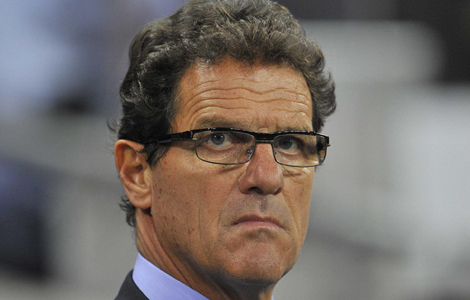Wen: Giant State firms need private investment
Updated: 2012-02-13 09:31
By Wei Tian (China Daily)
|
|||||||||||
BEIJING - Chinese Premier Wen Jiabao pledged to adopt further measures to encourage private investment in monopoly industries to address problems with China's economic structure.
In response to economic turmoil, Wen said the government this year will further support the real economy, small-and medium-sized enterprises (SMEs) in particular, and push forward reform of monopoly industries.
The government should also better handle issues related to living standards, tackle unfair income distribution and corruption, and address public concerns about inflation and the affordability of housing, Wen said.
The premier made the remarks in meetings held last week to solicit opinions from representatives of different sectors of society on the draft of the government work report, which is to be delivered at the annual session of the National People's Congress, China's top legislative body, next month.
Wen said private capital should be encouraged to flow to fields such as finance, energy, transport and social services, "which can not only alleviate the difficulties of economic development but also accelerate the development of these causes," he said.
Details of policies supporting private investments must be drawn up within the first half of this year, Wen said.
Zhou Tienong, vice-chairman of China's top legislative body, said reform of monopoly industries has lagged far behind and resulted in unfair competition.
Although there are already policies in place allowing the involvement of private capital in financial markets, those applying to do so were often rejected because of the high requirements, said Zhou Dewen, chairman of the Wenzhou Small-and Medium-sized Enterprises Development Association.
The establishment of private sector financial institutions will play an active role in solving the financing difficulties of SMEs and promote the healthy development of the private sector, he said.
Wen said the government is paying close attention to the economic situation in January and the first quarter of this year.
"We have to make a proper judgment as early as possible when things happen and take quick action," Wen said, adding that fine-tuning of macro policies should begin in the first quarter. China's inflation rate rebounded to a higher-than-expected 4.5 percent in January, fueling speculation that policymakers may be showing more caution when considering further easing measures, according to figures compiled by Wang Tao, chief China economist with UBS AG.
In addition, it is still difficult to determine the actual strength of the real economy at the current stage. Therefore, the market should not expect the central bank to cut the bank reserve ratio in the next few weeks, Wang said.
But in the long term, the downward trend of inflation has not changed, so the credit supply target and overall policy stance will not be affected, Wang said.
Xinhua contributed to this story.
Related Stories
Investment promotion pact with Canada near 2011-11-22 07:56
Investment environment 2012-01-30 11:03
Investment seeds sown in Germany begin to sprout 2012-01-06 10:54
Investing overseas delivers dividends 2011-11-09 08:01
- China working hard to lure foreign experts
- Valentine's Day 'will boost business'
- Direct purchase plans help farmers grow bigger profits
- US short-sellers muddy the waters
- Wuhu douses housing bailout speculation
- Three Gorges Dam to work at full capacity in May
- Govt to wipe out substandard slaughtering
- US to continue probes into wind tower imports








